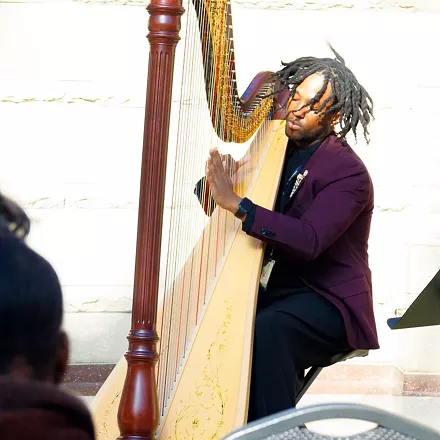Paul McCartney
Paul Stanley
Paul Reubens
Ron Paul
Six Organs of Admittance: Luminous Night (Drag City)
Six Organs of Admittance is Ben Chasny and cohorts playing psychedelic guitar folk similar to groups like Bardo Pond, tracing their lineage back to Nick Drake, Fairport Convention and other ’60s-era pastoral bands. Chasny’s songwriting is more melodic than most in the genre, and the contemplative sonic palette veils drama in the bitter “Anaesthesia” (“I’m a vengeful man/and you know that vengeance never hurt”) which, along with the distortion-infused “Cover Your Wounds With the Sky” lead this collection towards a study of pain and, true to the album title, the open air above plays a big part.
But, the sky provides an escape route, a path to somewhere else. “To leave any town, any time/a skill acquired from bein’ alone/only fixed to the stars as they twirl/around the tail of a bear like stone,” Chasny muses as guitar lines swirl above in imitation of birds. This leads into the “River of Heaven,” an Eastern-Indian influenced instrumental meandering river of sound, not necessarily joyous but elevated. The record doesn’t just illuminate, it enlightens. If this all sounds a bit too like a prog-rock concept album, it’s readily accessible.
Various Artists: Music For a Revolution (Arts Council England)
One of the most loaded words of the last century is “revolution,” a term embraced by pop musicians, most famously the Beatles, twice, with “Revolution” and “Revolution 9” in which John Lennon and Yoko Ono reworked the ending of the former song with the ominous voice intoning “Number 9,” one of the earliest examples of a remix.
This limited-edition collection, compiled by Alan Dunn, is a fascinating look at not only the musical uses of the word but also spoken-word samples, from The Cramps’ singer Lux Interior’s obituary to Aldous Huxley and Raul Castro, Marcel Duchamp, the terrorist Baader-Meinhof Gang and radio soccer broadcasts—diverse offerings that together indicate revolution has morphed into a ubiquitous symbol and a brand, the opposite of what most of its acolytes intended it to be.
Gil Scott-Heron’s iconic “The Revolution Will Not Be Televised,” the oft quoted and sampled elephant in the room, is not featured but cited as a cultural touchstone. Robert Pollard, the great ethnomusicologist of the sweeping-rock gesture, creates the ironic anthem “Headache Revolution.” The revolution may not be televised, and “the revolution will not be digitized,” according to Derek Horton on the sleeve notes, but this collection has traced the paths the word has taken in the course of a world revolving.
Speaking of Music Reviews, Paul McCartne,
-
Jason Isbell & The 400 Unit, Bronco
CD Reviews: Here We Rest, Painting Pictures of a Perfect Life
- Apr 19, 2011
-
SXSW 2011 Roundup
People tend to look at the South by Southwest Music Conference through the narrow tunnel of their own musical tastes ...
- Mar 22, 2011
-
Soundgarden, Wye Oak, Cory Mon & the Starlight Gospel
CD Reviews: Live on I-5, Civilian, Turncoats
- Mar 15, 2011
- More »
More by Brian Staker
-
Live Music Picks: April 12-18
Judas Priest, The Residents, Clownvis Presley, The Breeders and more.
- Apr 11, 2018
-
Loving the Alienation
Helios Creed and Chrome continue making iconoclastic music for outcasts.
- Mar 28, 2018
-
Live Music Picks: March 22-28
U.S. Girls, Ed Schrader’s Music Beat, Hell’s Belles, Columbia Jones and more.
- Mar 21, 2018
- More »
















